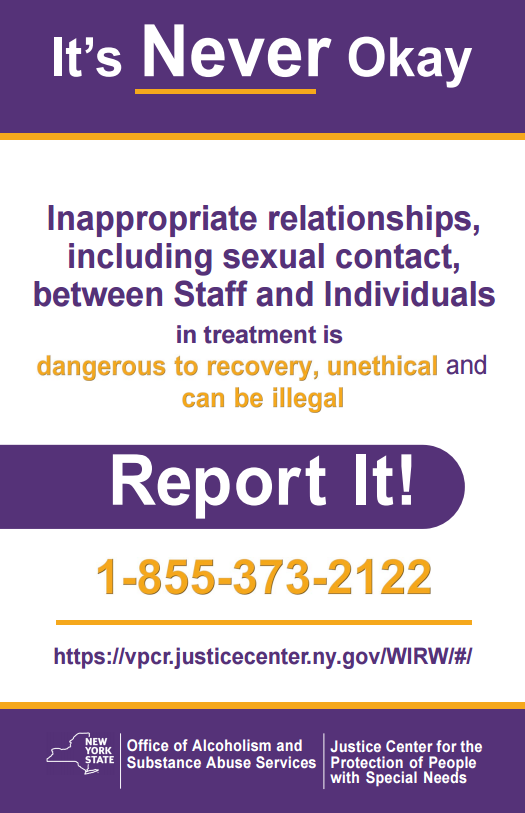Amos Doctor v. OASAS (PDF) (Doctor appears to be the surname)
Here is a case of sexual harassment by an OASAS counselor where the AA curriculum of admitting ‘honesty’ problems was used to completely undermine the complaint.
“At the conclusion of that hearing, the arbitrator dismissed all four charges and specifications against petitioner finding, among other things, that the testimony offered by client A and the intern was not credible. Specifically, the arbitrator noted that client A admitted that she had “feelings” for petitioner and that she had acknowledged – on a self-assessment form completed in connection with her treatment – that she was only sometimes honest with herself and others.”
(Client C was also found to have admitted she was ‘honest with herself and others only some of the time’). The intern was also found to be ‘not credible’.
So, after being told to depend on a sober person for her very life, and then being told that the reason she doesn’t recover is because she has problems with being honest, her complaint is thrown out because she had ‘feelings’ for her counselor and had admitted as part of her 12-step ‘work’ that anything she says might be a lie.
This is How it Works. New York State doesn’t look into the ‘AA thing’. But actually, my whole blog is about this exact dynamic: client develops feelings for the person supposedly saving his/her life, counselor gets off on it, client gets confused by being constantly described as powerless, insane, defective, selfish and dishonest, then counselor denies everything and says addicts just make shit up out of nowhere for no comprehensible reason.
So, I guess it’s only OK to fool around with clients if the client has admitted on paper that s/he is “constitutionally incapable of being honest”, according to New York State Supreme Court. Doing the mandatory AA homework is equivalent to signing all your rights away. In AA, ‘honesty’ is directly correlated to ‘sobriety’, and people who are not helped by the program (or the ‘treatment’ providers) are encouraged to admit problems with ‘honesty’ and confess their thoughts and feelings, which are then inevitably used against them.
‘Those who do not recover are people who cannot or will not completely give themselves to this simple program, usually men and women who are constitutionally incapable of being honest with themselves. There are such unfortunates.’
